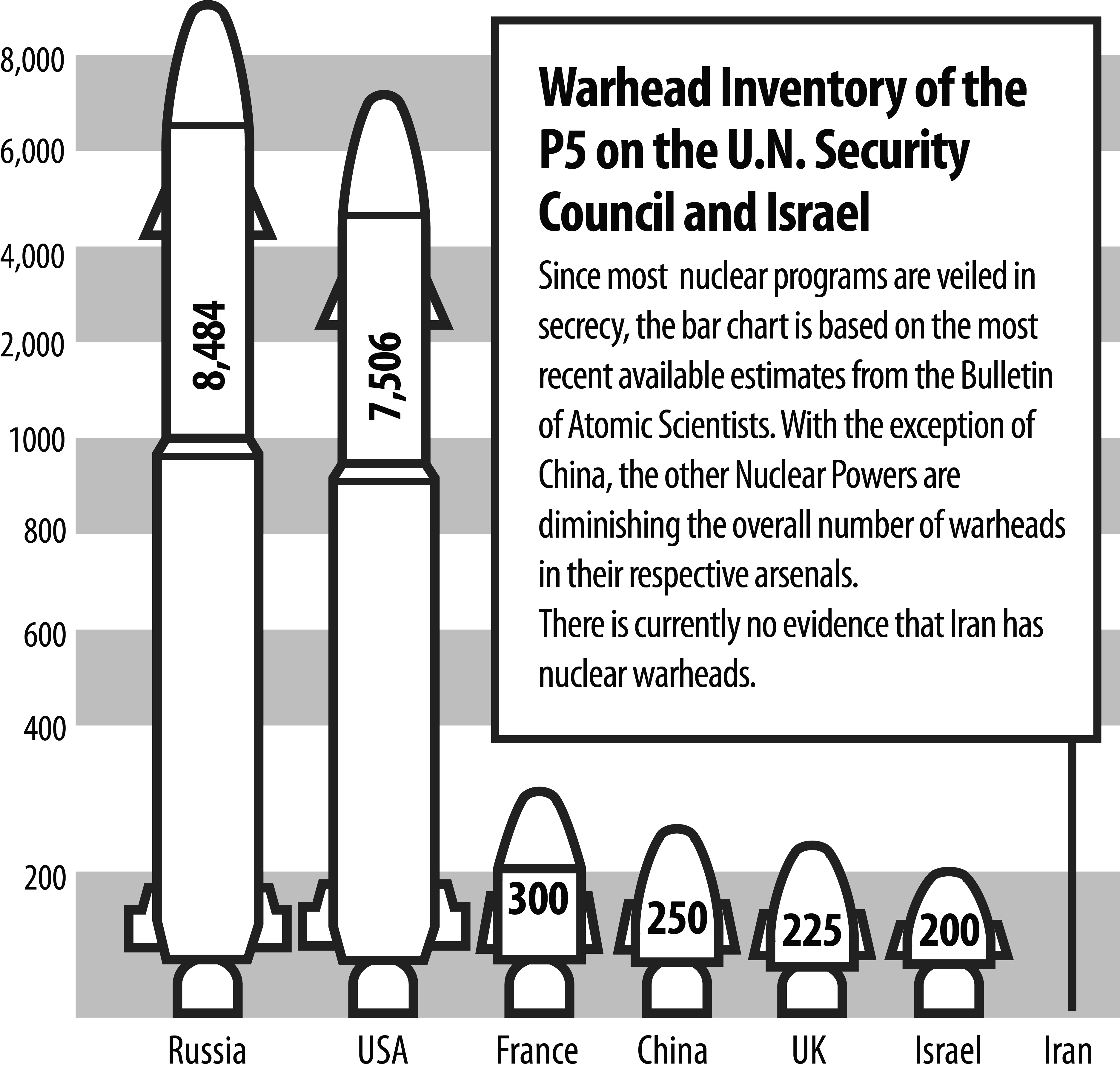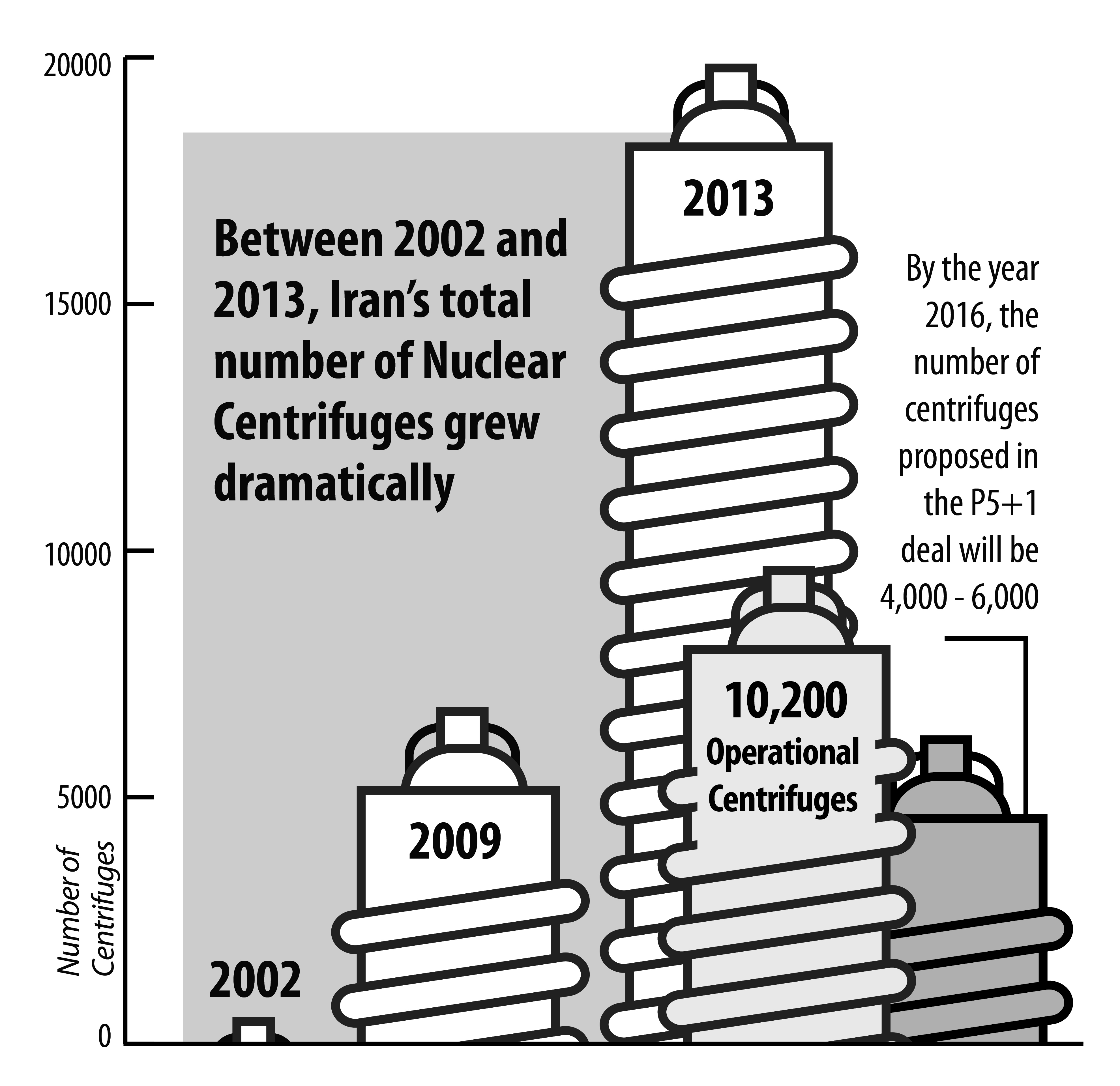In 2002, as U.S. military forces mobilized to invade Iraq, Iran possessed 200 centrifuges to enrich uranium. By 2009, that number had grown to 7,000. By 2013, Iran had acquired 20,000, with more than 10,000 enriching uranium. The acquisition of centrifuges, and the bringing of existing centrifuges online, was stopped by the P5+1 negotiations that began in 2013.
Those numbers are available and verifiable, because Iran, along with 188 nations, is a signatory to the Nuclear Non-Proliferation Treaty, and has opened its facilities to inspection by the International Atomic Energy Agency. North Korea was a signatory to the treaty but withdrew. Pakistan, India, and most notably Israel are not signatories. All three non-signatory nations have nuclear warheads and delivery systems.
Israel has modified U.S. F-15 and F-16 fighter jets to carry nuclear bombs. It has land-based intercontinental ballistic missiles. Israel also has, according to a 2012 report in Der Spiegel, three German-built Dolphin Class submarines armed with Popeye Turbo sea-launched cruise missiles that can deliver 200 kg nuclear warheads. From the Persian Gulf, the sub-launched missiles with a range of 1,000 miles can strike targets inside Iran.
All of the P5 (permanent members of U.N. Security Council—China, France, Russia, the U.K., and the U.S.) have substantial nuclear arsenals. Germany, the nation designated as Plus 1, imports nuclear weapons from the U.S. and produces warheads for France. Germany remains classified as a non-nuclear state.
The initial phase of the P5+1 negotiations ended on April 2, with an agreement to limit Iran’s nuclear-weapons capability. The deadline for a detailed finalized agreement is June 2015.
Sources: Bulletin of Atomic Scientists, Der Spiegel, Center for Research on Globalization.








0 Comments